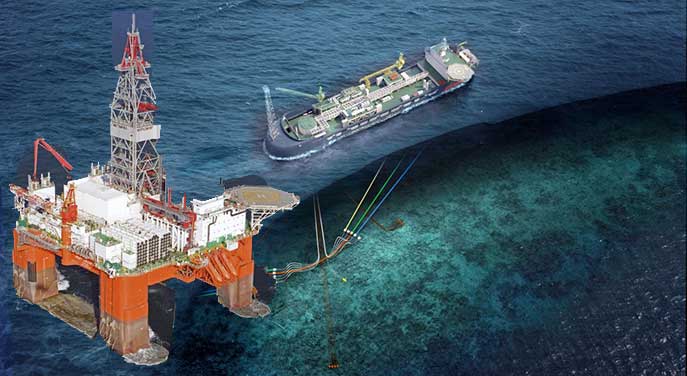 Two weeks after Bay du Nord received environmental approval, the Canadian and Newfoundland and Labrador governments were arguing about who would foot the bill. The project promoted as the answer to Newfoundland and Labrador’s economic woes could end up costing hundreds of millions in revenue.
Two weeks after Bay du Nord received environmental approval, the Canadian and Newfoundland and Labrador governments were arguing about who would foot the bill. The project promoted as the answer to Newfoundland and Labrador’s economic woes could end up costing hundreds of millions in revenue.
Some backstory: according to the United Nations Convention on the Law of the Sea (UNCLOS), when a nation decides to extract resources from the continental shelf beyond their territorial waters, they have to pay a royalty on whatever they extract. That money goes into a fund for projects in developing countries that do not have access to offshore resources. Royalties are not due until five years after first oil (currently projected to be 2028), starting at one per cent of the value of the product and increasing to a total of seven per cent for the life of the project.
In the end, the potential cost is hundreds of millions of dollars in royalties that must be paid.
Current projections indicate that the world will reach peak oil demand by 2030, two years after Bay du Nord comes online. As demand decreases, so will the price per barrel of oil. Three years later, when the first royalties are due, we will have less money coming back into our coffers than when Bay du Nord first came online.
| KEEP AN EYE ON NEWFOUNDLAND |
The federal government says they won’t foot the whole bill but could pay a portion, with the province picking up the rest. The province says that since Canada – not Newfoundland and Labrador – is the signatory to the convention, the royalties are a federal responsibility. Equinor – a state-owned company of a signatory to UNCLOS – refuses to weigh in at all, leaving our governments to fight it out amongst themselves.
They have a couple of years to figure it out, but ultimately this means Canadian dollars paying for yet another oil project.
In a 2021 report, the International Monetary Fund (IMF) said that we need to re-evaluate what we consider a fossil fuel subsidy. Subsidies are more than just minimizing the cost of production; money spent addressing climate disasters, oil spills, environmental cleanups, and other industry impacts are also subsidies for the industry.
Even though they are calling it a “royalty,” Equinor’s refusal to participate in the discussion, despite championing this project, means our governments will be paying whatever amount is owed. That’s a subsidy by another name.
Some of you may argue that subsidies are a cost of doing business, but here’s the issue: in recent years, both the federal and provincial governments stated that they would be ending subsidies on fossil fuels entirely. Meaning we shouldn’t be paying a cent towards minimizing the costs of production, be it through a subsidy, support fund, or royalty.
Bay du Nord oil project needs swift approval by Miguel Ouellette
Economic benefits crucial to the Newfoundland and Labrador economy
Newfoundland’s Bay du Nord a bad investment by Conor Curtis
Both economically and environmentally
This is just further evidence that Bay du Nord is a bad investment. Our provincial officials keep insisting Bay du Nord will pay for our health care, our roads, and our schools, but the math doesn’t work when a hefty royalty bill starts cutting into those shrinking profits. It’s ridiculous to expect the public – provincially or nationally – to continue paying for these projects. If they are so economically viable, the companies championing them should join the conversation of who pays the cost.
Which brings us to Equinor. Norway ratified UNCLOS in 1996, and Equinor is a state-owned corporation. Though they argue that the royalties have to come from our governments rather than their company, this is their project – they found the reservoirs, they want to drill, and they insist that despite the distance and depth of the site and increased associated costs, this will be paydirt. If that’s the case, surely seven per cent isn’t that much on top of the millions they, as a company, will receive.
If they want a stake in the game, they have to ante up.
Heather Elliott writes from St. John’s, Newfoundland and Labrador and is a local organizer with the Sierra Club Canada Foundation.
Heather is a Troy Media Thought Leader. For interview requests, click here.
The opinions expressed by our columnists and contributors are theirs alone and do not inherently or expressly reflect the views of our publication.
© Troy Media
Troy Media is an editorial content provider to media outlets and its own hosted community news outlets across Canada.

